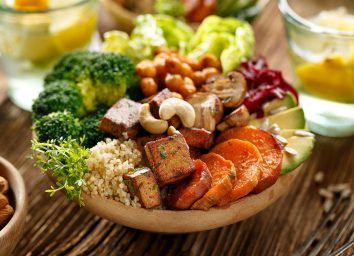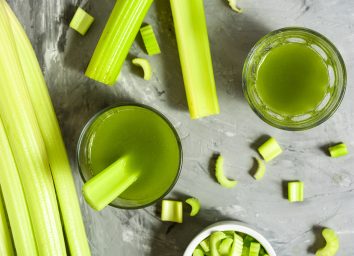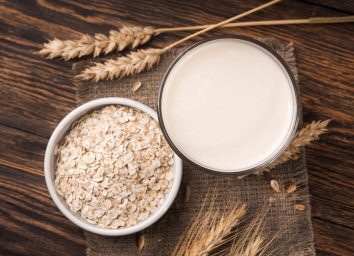The 10 Best Healthy Food Trends of 2019
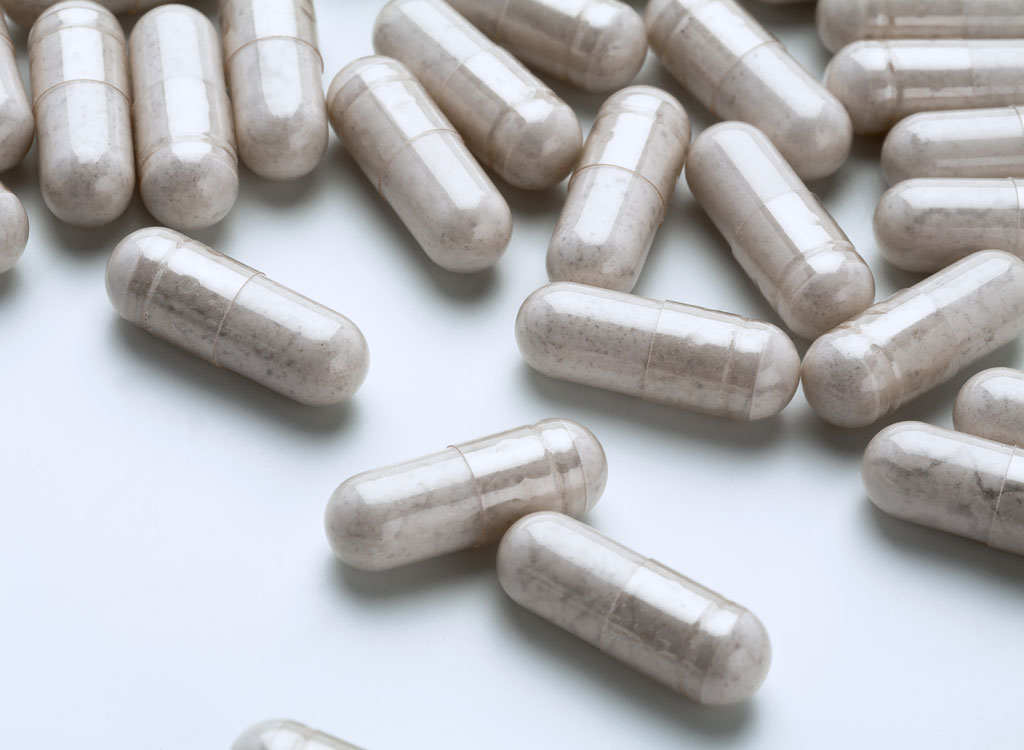
When everyone around is you trying the latest fad diet, it's pretty easy to confuse "popular" with "healthy." Unfortunately, they're not automatically the same thing—and 2019 saw its fair share of popular but unhealthy food trends.
Thankfully, though, several of the year's most popular food trends were actually healthy: they encouraged people to make better choices about what or when they eat, and they helped dieters gain a better overall understanding of what their bodies need in order to function in top form.
To sort out the junk trends from the legitimately good ones, we asked nutrition experts to tell us which healthy food trends they hope will stick around until 2020 (and beyond!). Here are their favorites.
Fermented Foods
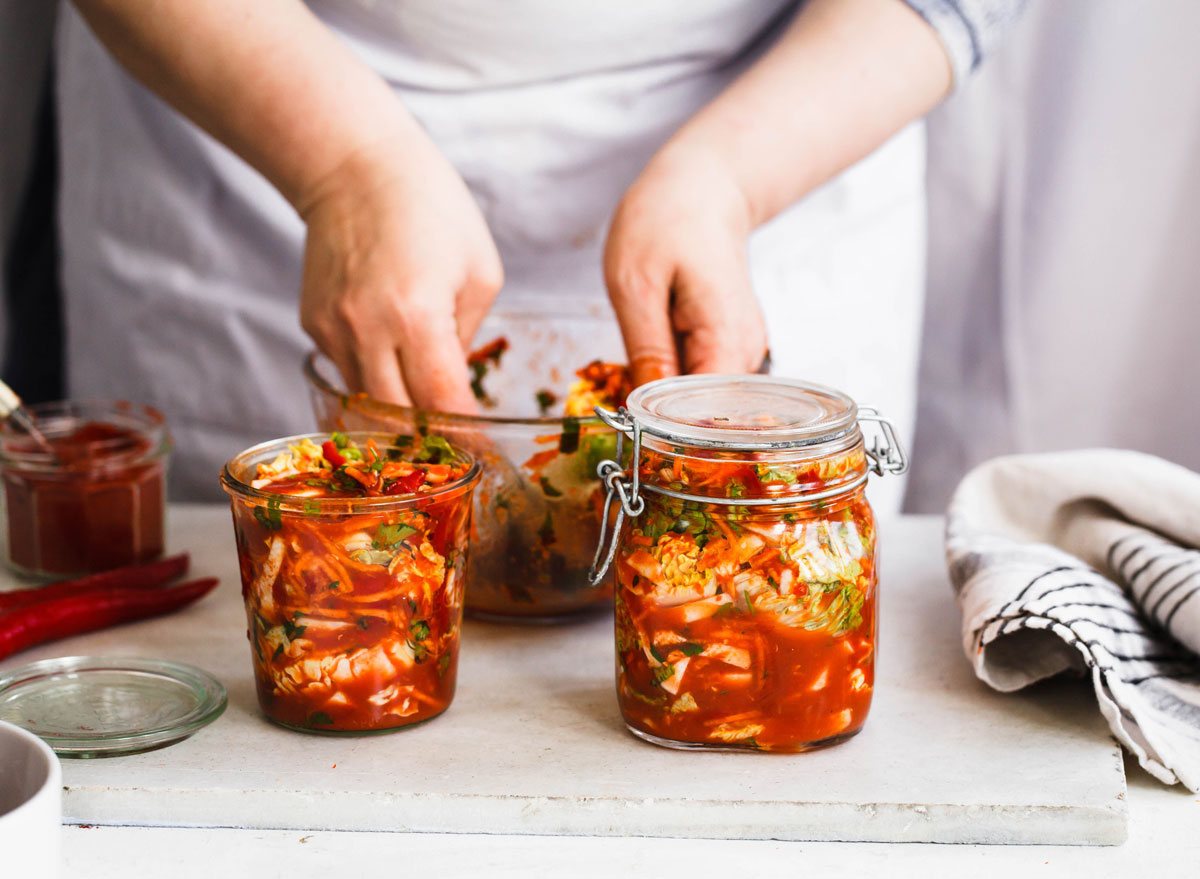
On the surface, fermented foods might not sound terribly appetizing (ever wonder what that thing floating on top of your kombucha is?). But there's a power source of probiotics lurking inside those mysterious jars.
"I'm all about the emerging research indicating that gut health is a major factor in overall wellness," says registered dietitian Barbie Boules, RDN, of Barbie Boules Longevity Nutrition, "and fermented foods, which contain probiotics, promote a diverse and flourishing gut microbiota."
Probiotics can assist people with digestive disorders like irritable bowel syndrome and Crohn's disease—but may also be beneficial for a whole bunch of non-gut related problems, like eczema and vaginal infections. "Everything from inflammation to bodyweight to mood can be linked back to gut health, so filling your diet with foods to support it is a trend we should all be behind," says Erin Palinski-Wade, RD, author of Belly Fat For Dummies.
If you're not already eating fermented foods, you can start by grabbing some kefir, sauerkraut, or kimchi the next time you're at your local health foods market.
Plant-based Diets
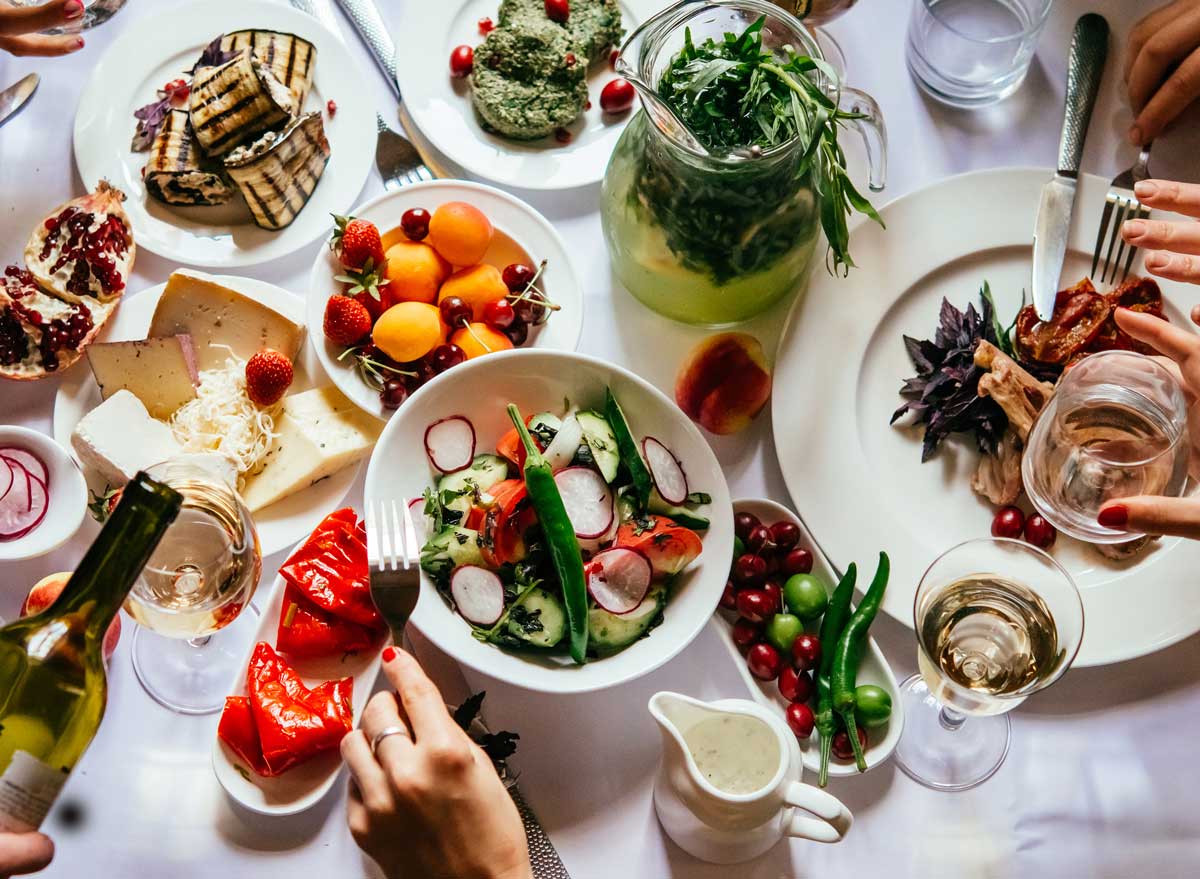
Veganism and vegetarianism have been around forever, but in the last few years they've come together under an umbrella of lifestyle diets known as "plant-based." While a plant-based diet isn't for everyone, dietitians largely agree that eating more foods from plant sources is never a bad thing. "Reducing animal proteins while increasing your intake of fruits, vegetables, and legumes has been shown to have a positive impact on cardiovascular health, body weight, and longevity," explains Palinski-Wade.
If you're feeling intimidated by the idea of going all-in on a plant-based diet, the good news is you don't have to become a 24/7 herbivore in order to reap the benefits. You can slowly transition to a plant-based diet without giving up meat entirely. "Think about filling half your plate with veggies or eating maybe one plant-based meal per day," suggest Boules. "The benefit is vitamins, minerals, phytonutrients, fiber and hydration from [sources other than just] water."
Shelf-stable Probiotics
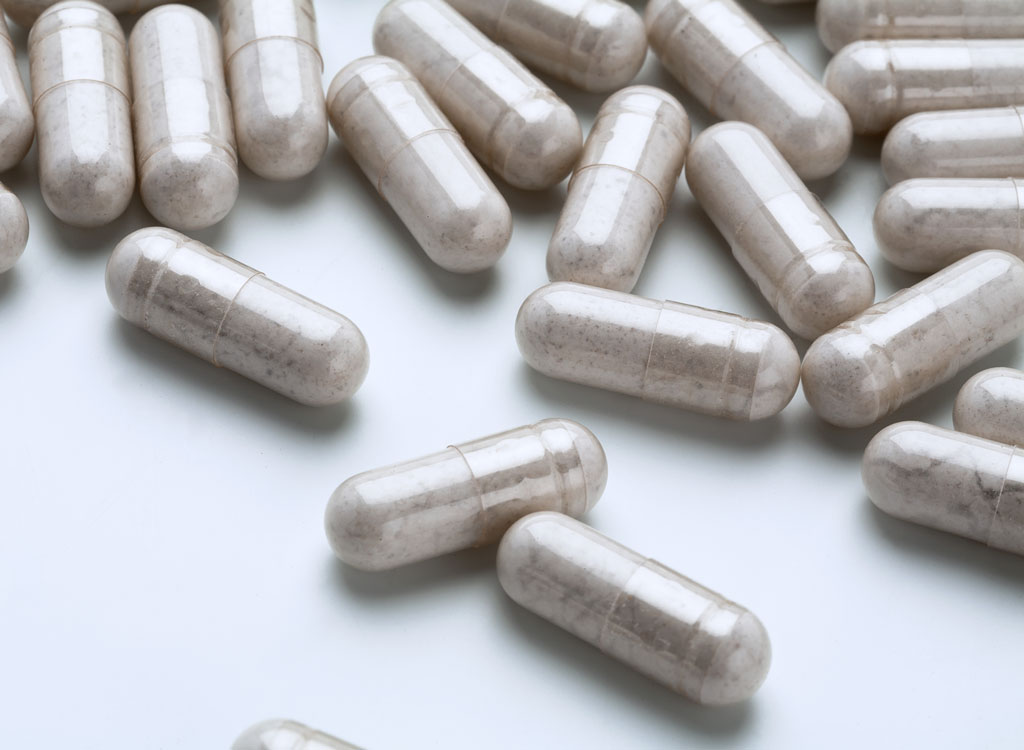
Remember when we sold you on the gut health benefits of probiotics? There's good news if eating fermented foods isn't your thing: you can also just take a daily supplement to get your probiotic fix. "[Probiotic supplements] can be a great way to support gut health, but you need to take [them] consistently for the best benefit," says Palinski-Wade.
The only problem with probiotic pills? Probiotics that need to be refrigerated are more likely to be forgotten (you know, "out of sight, out of mind") and it's hard to take them on-the-go, too, like when you're traveling.
Shelf-stable probiotics (i.e. ones that don't require refrigeration) solve this problem, but Palinski-Wade warns that you do have to choose your products carefully. Make sure the brand you're taking has been tested for potency to ensure the shelf-stabilization process is actually working. It's also a good idea to know which probiotics work best for your individual health needs. "You can take specific strains to help with certain issues," says Amy Gorin, MS, RDN, owner of Amy Gorin Nutrition in the New York City area. "For instance, if you're currently taking antibiotics, you can take a specific probiotic (Saccharomyces boulardii) to help replenish the good bacteria that the antibiotics kill along with bad bacteria."
Alternative Milks
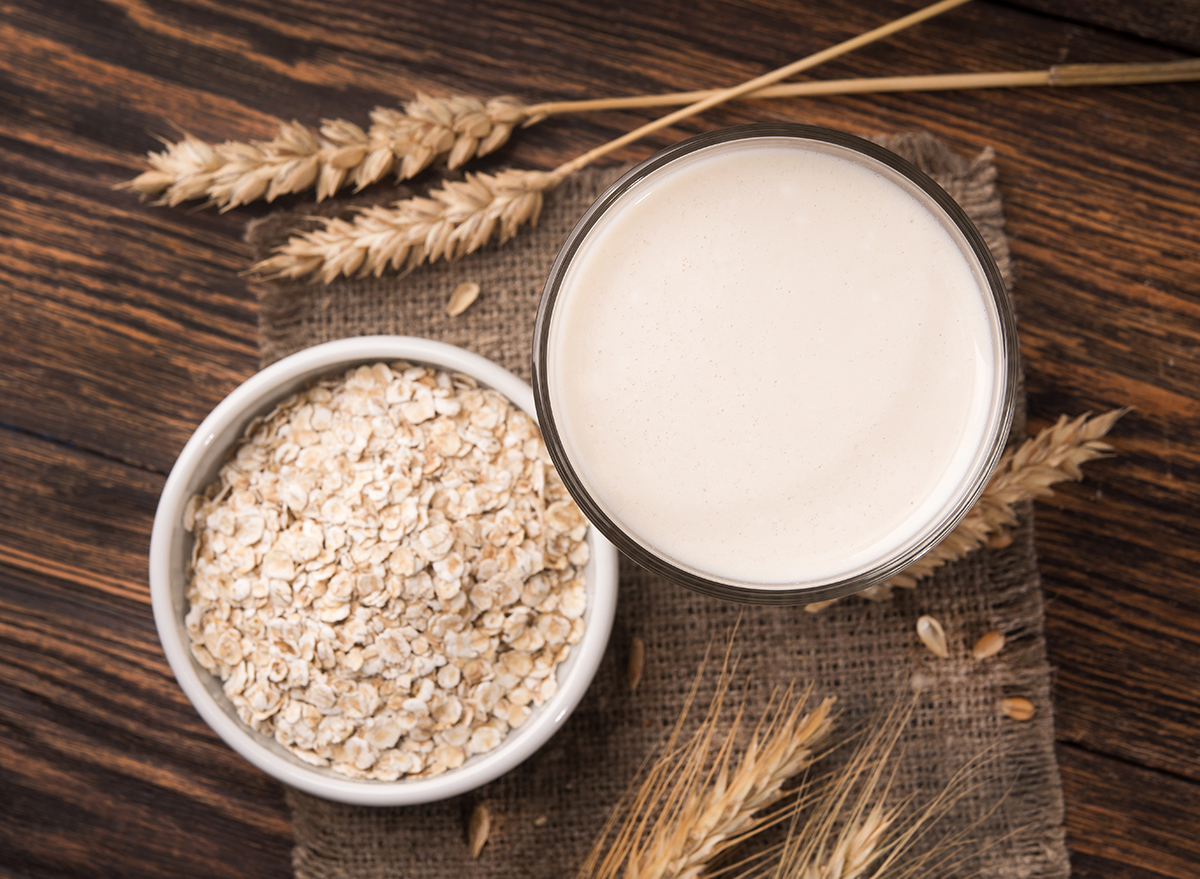
If you're still drinking cashew milk, you've fallen behind in your health food trends—in 2019, people in-the-know started getting their milk from oats and peas (yes, peas!). Here's the 411 on the new non-dairy milks on the block: oat milk is basically just rolled oats mixed in a blender with water and strained, while pea milk is made from the powder of yellow peas and is vegan, nut-free, gluten-free, and soy-free.
But is drinking oat or pea milk actually good for you…or is it one of those things we'll all be laughing about at the end of 2020? Well, Boules says there is a benefit to drinking these alternate options: protein. You get about three grams per serving for oat milk and a whopping 10 grams per serving for pea (which is more than you get with either cow's milk or soy milk).
Still, making the switch from almond milk to pea milk isn't necessary for everyone. "Unless you have a dairy sensitivity, are a vegan, or simply prefer these milks from a taste standpoint, there's no evidence-based health advantage to plant-based milks," says Boules, who adds that they typically contain thickening gums, stabilizers, and extra sugar.
Whole30
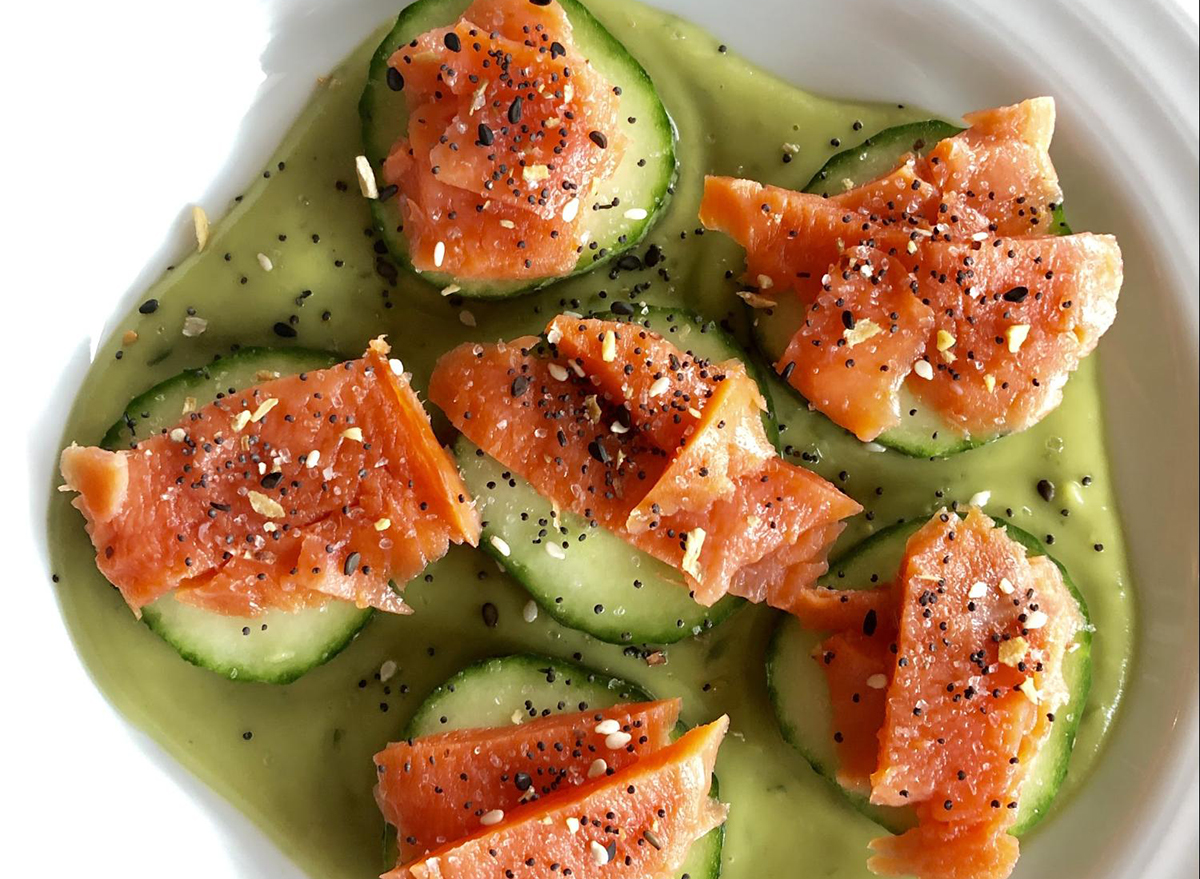
The Whole30 diet, which instructs dieters to consume unprocessed, nutrient-dense foods in their "whole" form, peaked in popularity in 2017. But it's continued to stick around since then, and Cynthia Thurlow, NP, a nurse practitioner specializing in nutrition, hopes it stays that way.
"Whole30 helps people remove the foods that are most inflammatory [for them] like gluten, grains, dairy, soy, or sugar," she explains. "It also adjusts my patients' palettes and preferences, [which makes it a] win-win in my book."
Whole30 can be restrictive since it doesn't allow any processed foods, which means it's probably not the best choice for a long-term diet; but when used appropriately as a short-term elimination diet (the number 30, for 30 days, is right in the name!), it can lead to long-term lifestyle changes.
Matcha
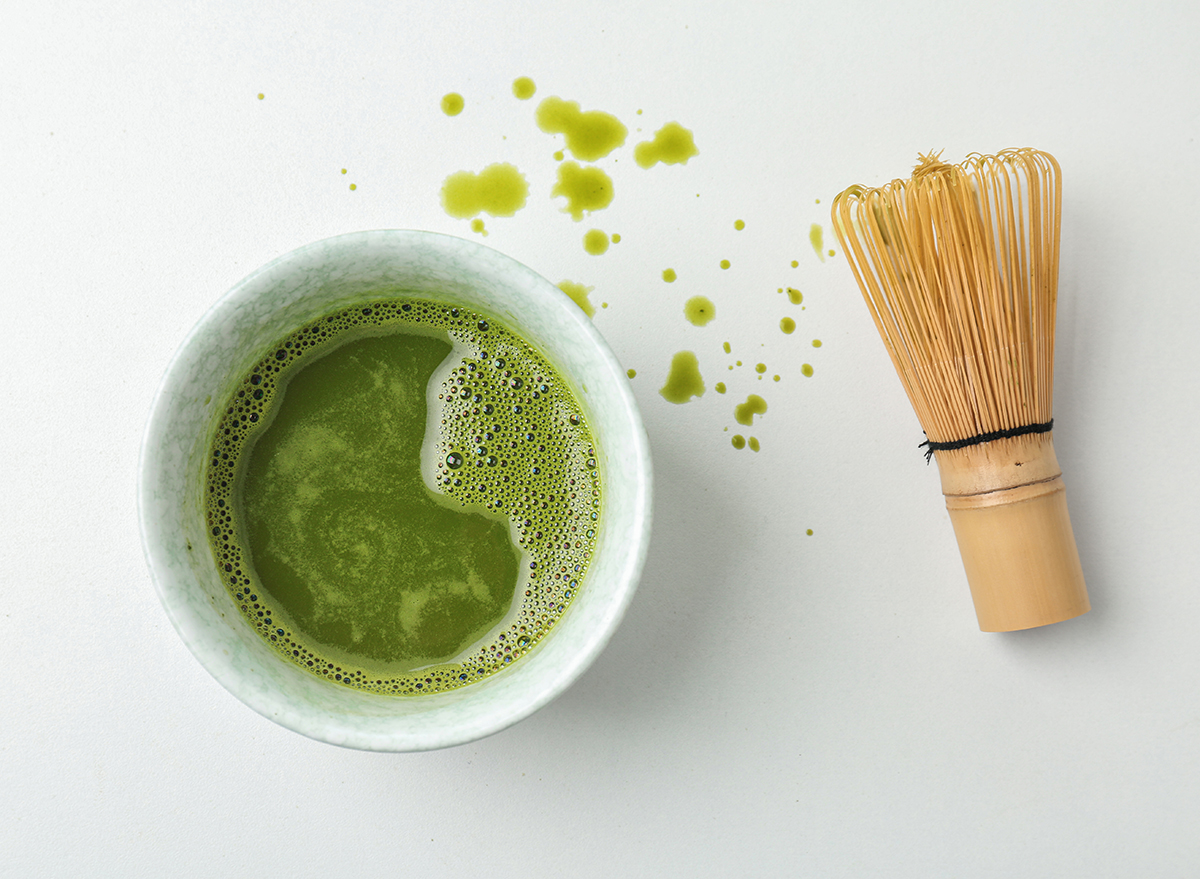
Matcha, a variant of green tea, has been popping up on coffee shop menus for a while now, but it wasn't until this year that we started seeing the stuff appear more widely in recipes. Made from high-quality green tea leaves ground into a powder, the drink is then mixed with hot water (rather than steeped) to make a frothy beverage.
"Anything that gets us eating more antioxidants is a good thing, and matcha provides the health-helping antioxidant EGCG," says Gorin, which stands for epigallocatechin gallate—a compound that may prevent and fight cancer.
One of the things that makes matcha such a 2019 health trend star is that it's good for you and super easy to work into your diet. "I've been seeing more and more innovative ideas for consuming matcha by incorporating it into beverages as well as recipes like matcha green muffins," Gorin says.
Paleo
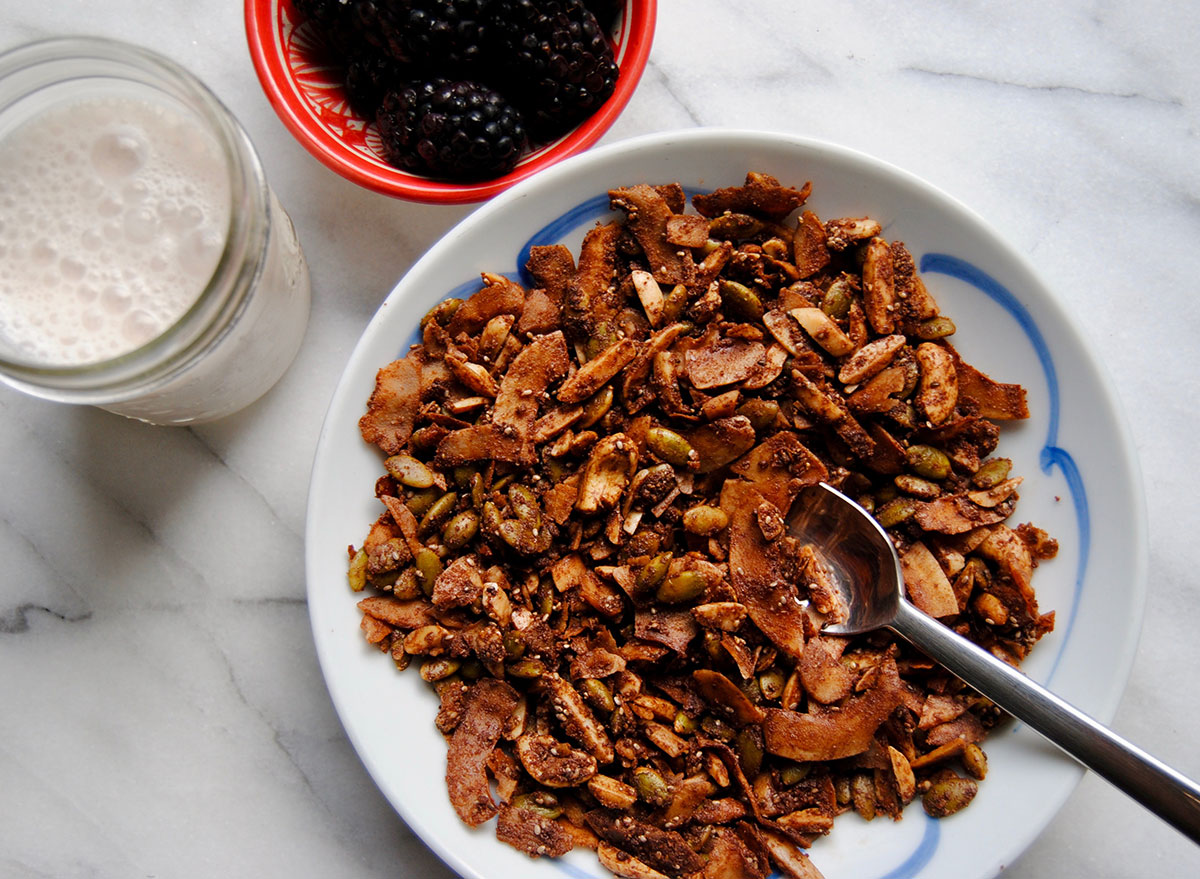
This diet is another way to get back to your ancestral roots, so to speak, when it comes to your food: people on paleo eat food similar to what would have been available during the paleolithic period, like lean meats, fish, fruits, vegetables, nuts, and seeds. Just like Whole30, Thurlow says this largely unprocessed way of eating can lead to important changes in your overall attitude about food—and your health.
"If done properly, paleo can be hugely beneficial and many people lose weight, improve gut health, and sleep better," says Thurlow. One caveat? Don't fall victim to all the commercialized paleo foods on the market, which Thurlow says aren't much better than junk food in terms of how overprocessed (and full of unnecessary ingredients) they are. Instead, make your own paleo granola recipe at home.
Mediterranean Diet
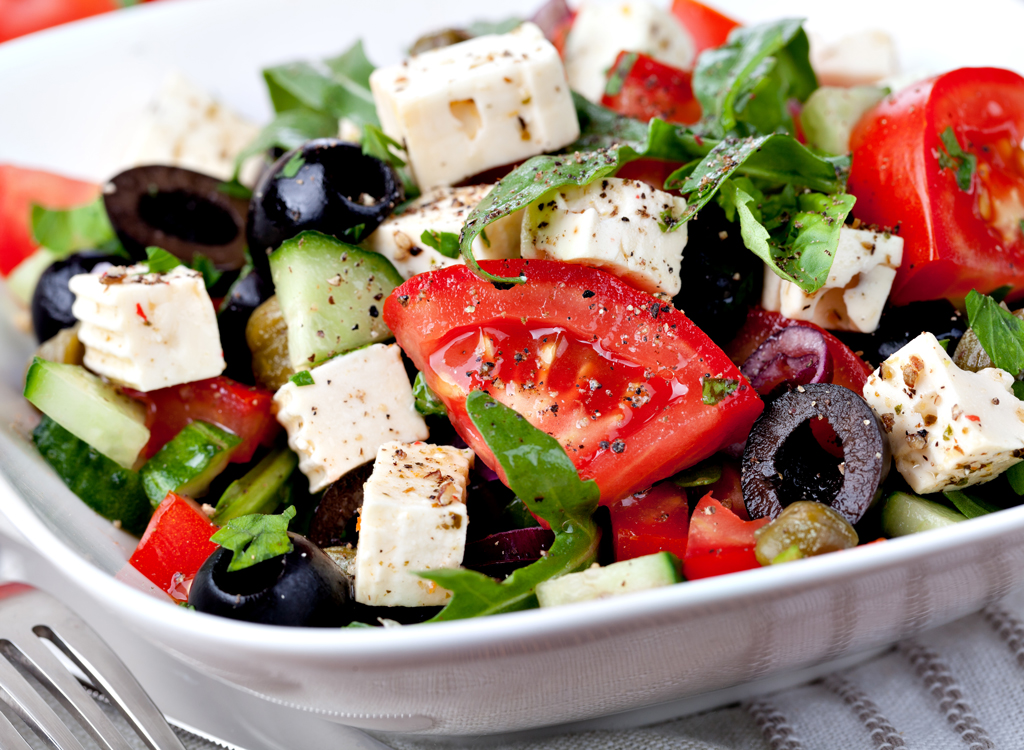
Just like in the fashion world, there will always be a place for the classics, and the Mediterranean diet is a perfect example of how good things never truly go out of style."The Mediterranean diet has been popular for ages and I'm happy to see it's still popular," confesses Gorin. The eating style is more of a lifestyle than an actual diet, which means it has that all-important sustainability factor.
Based on the eating habits of people living in the Mediterranean, the diet typically includes vegetables, fruits, fish, olive oil, nuts, beans, legumes, and a moderate amount of red wine and dairy. In addition to weight loss, the benefits of the Mediterranean style of eating extend to aiding heart health and brain health, too—so there's a good reason to hope that people are still embracing this trend in 2020.
Homemade Cauliflower Crust
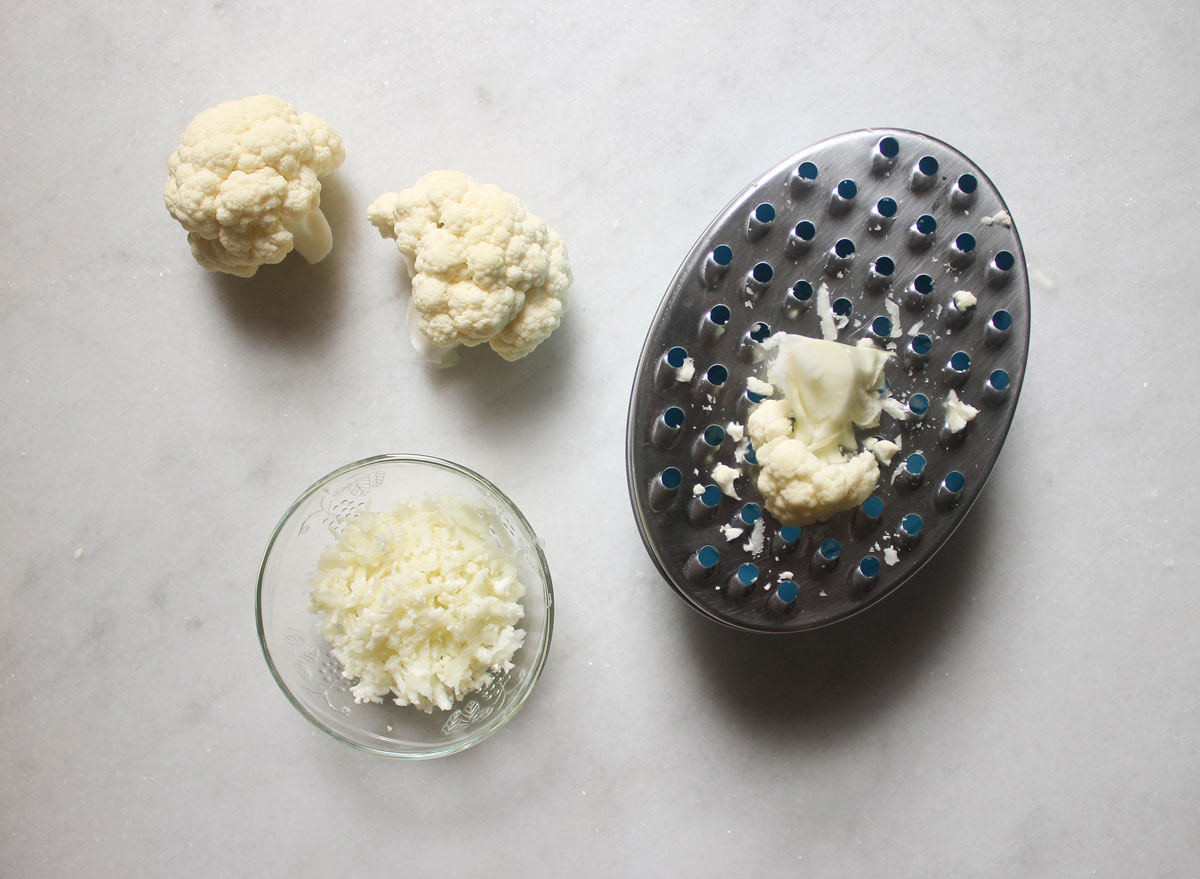
We dare you to find a dietitian that doesn't want to see people eating more vegetables! Sure, you could toss some bell peppers onto your pizza, but what if you turned your whole pizza crust into a vegetable? Enter: cauliflower crust, seen everywhere in 2019 from frozen foods to fancy restaurant menus.
"A huge contributor to poor health and weight gain is the excessive intake of refined carbohydrates," says Palinski-Wade. "By replacing some of these refined carbs with cauliflower-based alternatives, you can make eating your favorite foods more nutritious."
That said, premade crusts are often loaded with extra junk (like white rice flour). If you're gonna go cauli, you gotta go homemade. "I have a recipe on my website that is cauliflower crust as it's intended: one head of cauliflower, 1/3 cup of goat cheese and one egg," says Boules. "No fillers, gums, protein isolates, or grains mixed in."
Activated Charcoal
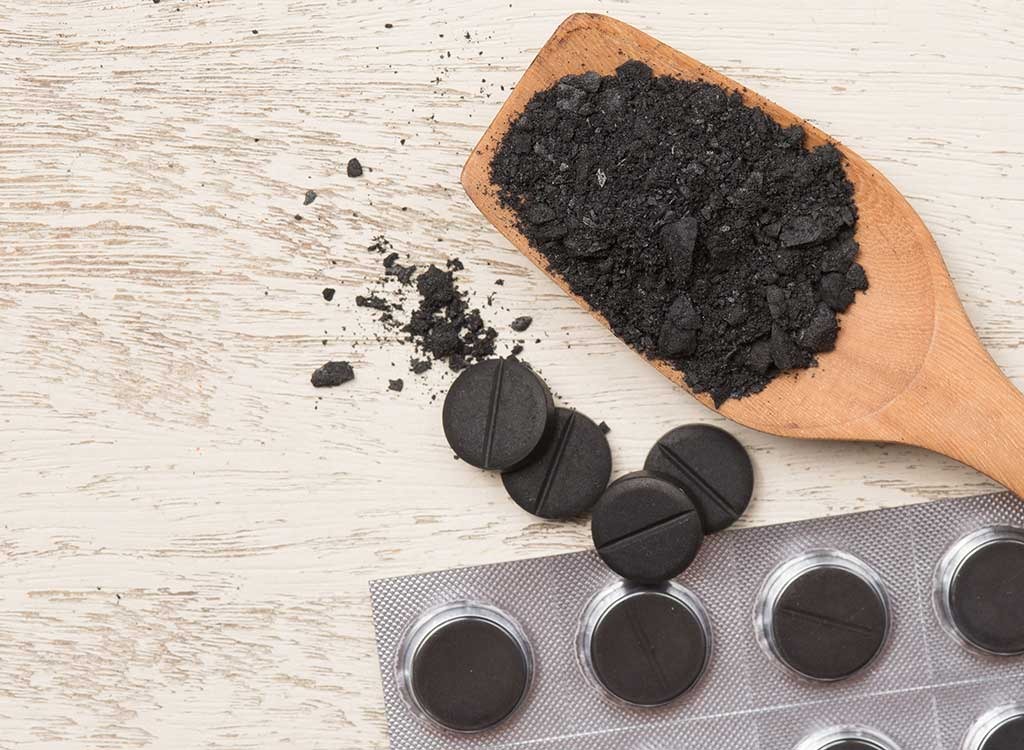
A specific type of charcoal that is processed at very high heat in order to make it more porous, activated charcoal is commonly used as a treatment for overdoses or accidental poisonings (which is, incidentally, how Thurlow first became familiar with it).
"I grew accustomed years ago to using activated charcoal in the ER for overdoses," she explains, "but I enjoy using this binder with my patients and myself."
Because activated charcoal can bind to toxins in the intestines and prevent them from being absorbed, Thurlow says it can work (in moderation!) if you're traveling in a foreign country, have food poisoning, or as the occasional detox drink. Basically, this stuff does do what it says it does and may even benefit people with gastrointestinal issues like diarrhea, gas, and bloating—but it's powerful stuff, and shouldn't be misused.
